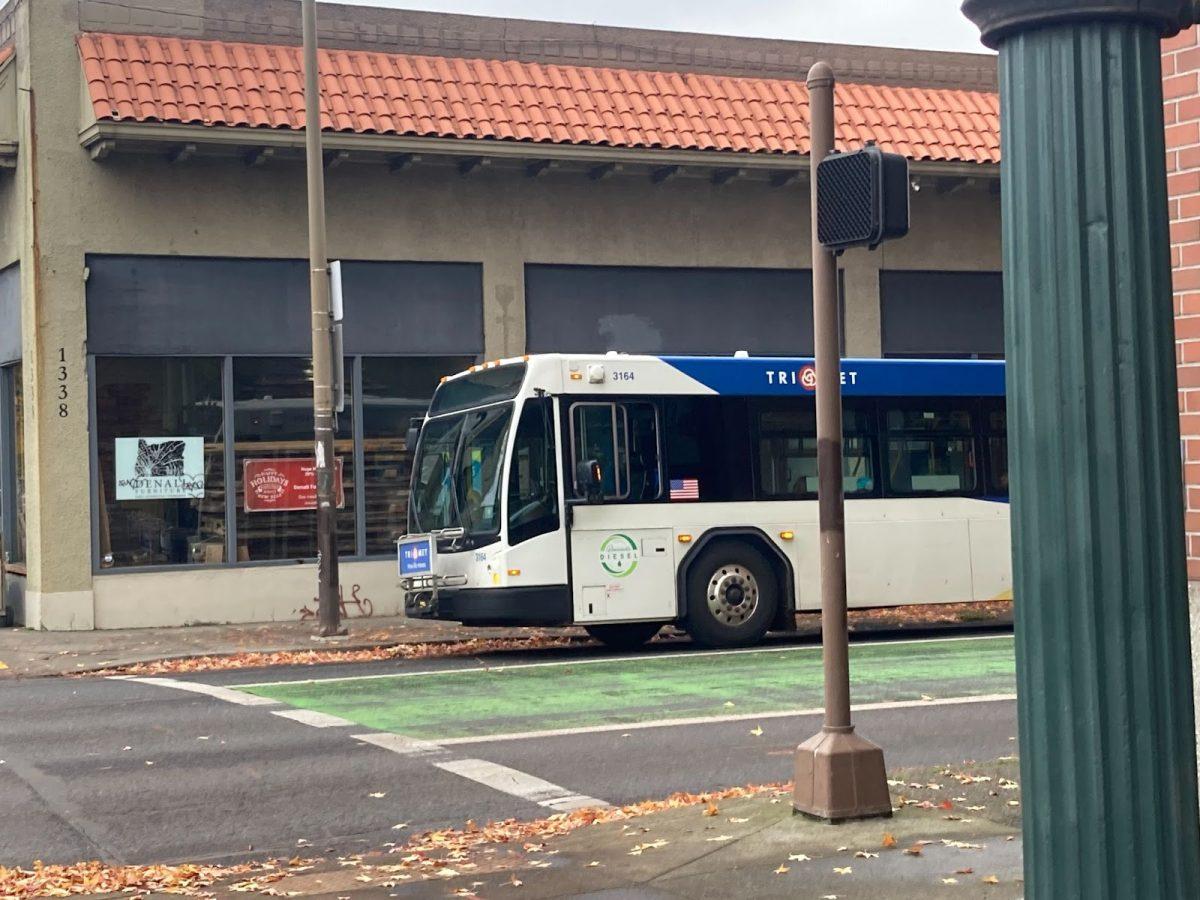Trimet is currently experiencing an ongoing operator shortage that has plagued the Portland Metro area with bus delays and a decrease in service. Portland is known for having efficient public transportation, but the shortage puts its reputation at risk. Bus driver shortages are one factor contributing to schedule delays, which heavily impact students who rely on public transit to get to class on time.
The company is lacking employees in part due to the COVID-19 pandemic. Tia York, Trimet’s Manager of Media Relations, commented that the pandemic caused “many people to evaluate and reconsider their employment situation. For TriMet, this led some to look for work outside of the agency, seek positions with more responsibility within TriMet, or retire and get out of the workforce altogether.” The loss of workers prompted Trimet to increase incentives with the hope that retaining employees would help Trimet maintain their routes and schedules.
The starting yearly salary is now $52,000, and will increase to $58,000 by the end of 2023. The hourly wage increases with seniority, starting at $28.13 per hour, and reaching $35.17 per hour after 35 months. In addition, the starting bonus was raised to $7,500. But as York mentioned, “[it] is paid out over three years, which is another way to encourage new hires to stay with us.”
Working at Trimet includes benefits such as low to no cost medical, prescriptions, dental, and vision insurance, and health care. Life employer paid insurance is available to both full and part-time drivers, with $18,250 for part time and $25,000 for full time employees. A free transit pass for employees and their families makes navigating through the city more accessible. The job also now allows new drivers to be full-time, rather than having to start at part time. People interested can come from any background, all training is provided, and no commercial driver’s license is needed prior to hiring.
Portland has become one of the most expensive metropolitan areas to live in, due to inflation and price of living increases. From 2010 to 2020, Portland’s cost of living rose 22%, according to KGW-8. Trimet has made an effort to adapt to this, increasing their starting wage 56% since mid-2021. Trimet’s “starting wage of $28.13 per hour (which began December 1, 2023) is notably higher than the average wage displayed for transportation workers in the Portland area,” stated York.
Recently, hundreds of new drivers have been brought on, and about 70 applications are received by Trimet per week, according to KOIN 6. However, more people are leaving the job than being hired, in part due to internal transfers and promotions: “so many of [Trimet’s] promotions [are being] made from our bus operator ranks. Operators can move into other positions including supervisory roles once they complete the six-month probationary period,” noted York. The shortage is an ongoing struggle for the company and the city as a whole. This is in part due to the fact that bus drivers are always the front lines, interacting with people who come from a wide range of circumstances.
Trimet has also made an effort to make the job safer. “Trimet has doubled our budget for safety and security since 2021,” said York. These security measures included expanding the usage of the operator safety panels that were installed in 2020.
Shortages and traffic cause delays and cancellations. Usually, Trimet supplies a reliable way for many students in Portland Public Schools to get to school each day. Some high school students have licenses and cars allowing them to drive to school, while others rely on public transport. Georgia Burns, a senior at Franklin, mentions that “My morning bus is 10 to 15 minutes late frequently and it makes me late to class.” The amount of time students spend in class can be reduced by buses being late, although not everyone is affected.
School, homework, extracurricular activities, and other responsibilities can build up to a lot of pressure for students, making their free time essential for relaxation and regeneration. In order to participate in extracurricular activities, some students rely on public transportation. Bus delays “affect the time I have in the afternoon to relax and do homework before I have extracurriculars,” says Olivia Thomas, a student at Grant High School.
Trimet is currently implementing incentives to hire more operators, but until the schedules become more consistent, students and other passengers will continue to be impacted. Thomas states that “regardless of delays, the bus I take doesn’t come at very frequent or regular times, and is often late, making it very unpredictable and inconvenient.”


































